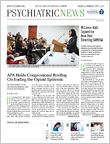The Joint Commission recently released a Sentinel Event Alert on the essential role of leadership in developing a safety culture. The field of psychiatry should take note—for a few reasons.
We practice in a litigious environment. We must be mindful that sometimes bad things happen—bad things that sometimes can be attributed to the culture in which the event occurs rather than to the clinicians involved.
As clinicians, psychiatrists are essential leaders in instilling a culture of safety in health care. We are positioned to transform care through a collaborative approach that will catalyze and strengthen cultural change, collaborating with colleagues in health care as well as policymakers, family members, and patients.
What is a safety culture? The Joint Commission defines it is as “the product of individual and group beliefs, values, attitudes, perceptions, competencies, and patterns of behavior that determine an organization’s commitment to quality and patient safety.”
Contributing factors to poor safety culture include insufficient support for reporting patient safety events, intimidation of staff who report events, and refusal to consistently prioritize and implement safety recommendations, according to the Joint Commission Center for Transforming Healthcare.
In contrast, a strong culture of safety supports clinicians who in turn support the individuals we serve. Clinicians, leaders, and policymakers in our field all have a duty to support a culture of safety and to remove the barriers that block change toward achieving it. Much of psychiatric practice focuses not only on the support of an individual’s recovery but also on keen and dedicated attention to safety. Safety manifests itself in the practice of our ethical principles, including primum non nocere (first do no harm); as well as beneficence, justice, and autonomy. Psychiatrists are experts in suicide risk assessment and risk management; violence risk assessment and management associated with mental illness is also a core psychiatric competency. Given our principles, we should be experts in safety culture as well.
As psychiatrists, we also are not strangers to sentinel events—those patient safety events that can occur and result in death, permanent harm, or severe temporary harm that require intervention to sustain life, but are not related to the natural course of a patient’s illness or underlying condition. In psychiatric settings, they can include self-inflicted injuries, elopements, falls, and restraint-related events, as well as delays in treatment, medication errors, and even criminal events. In our nation, suicide is the second most frequently reported sentinel event to The Joint Commission. Psychiatric hospitals are the second most frequent location for reported sentinel events; hospital psychiatric units, third; and behavioral health care sites, sixth.
An analysis of sentinel-event data compiled by The Joint Commission demonstrates that leadership’s failure to create an effective safety culture is a contributing factor to many types of these adverse events. This even further creates an urgency for leadership to set the vision and path toward a strong safety culture.
The time is right and critical to establish and improve safety culture for our country. In a move toward a more integrated system and with psychiatric collaborative leadership and clinical expertise, psychiatrists are positioned not only to be a part of this transformation, but also to be at the forefront in establishing, improving, and maintaining a culture of safety. ■

